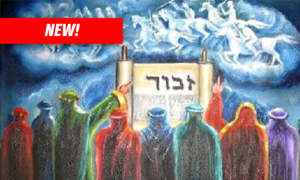A. Judges and courts
The first verse of the parsha teaches us several important laws about judges (Source 1).
2. Trial without witnesses?
The Midrash tells of G-d’s gift to Solomon, the ability to judge correctly without witnesses or warning the defendant before he committed the act, as seen in the famous story of the two women and the dead child (Source 2)
Question: The Talmud says otherwise, that a heavenly voice told Solomon that this is not allowed; he must rule using witness testimony.
Question 2: Jewish law demands that judgment only be based on witnesses, “Torah is not in the heavens.”
3. Heavenly Proof
The Talmud tells a story of how the manna the Jews received in the desert helped Moses resolve a dispute about ownership of a slave, because the manna was distributed according to the number of household residents.
But how can ownership be determined by heavenly actions?
4. Lions and bears at judicial proceedings
Solomon’s throne was built with incredible ingenuity. Built of gold and jewels, on its steps stood lions, eagles, oxen, wolves and bears. Classical sources say that when witnesses would come testify before Solomon, the oxen bellowed, the lions roared and the bears growled, which caused the witnesses and defendants to only speak the truth (Source 5).
Accordingly, Solomon’s judicial proceedings may not have had witness testimony, but they had confessions. Terrified by the scene, they confessed to the truth and Solomon ruled based on that. The Rebbe quotes the story of the barrels of honey as an example of this (Source 6).
The same happened with the manna. The manna descending for Reuven wasn’t admissible evidence in the court. But the fact that the manna continued to fall for the true owners brought the other one to confess.






